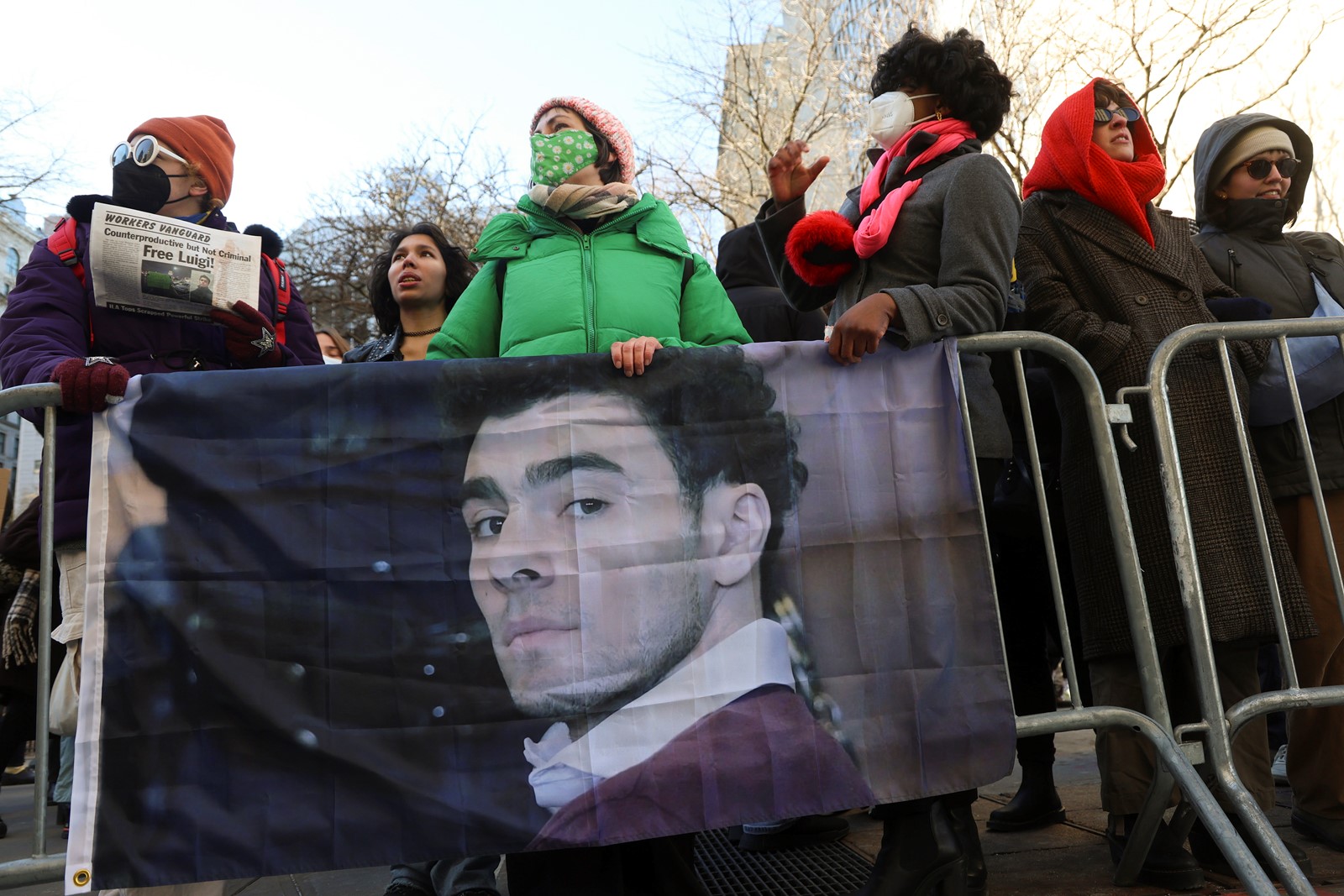
Even when he was just a wanted man smiling in a surveillance picture, Luigi Mangione elicited a fervent response from some Americans. Now identified and charged in the brazen fatal shooting of a health care executive, his influence has persisted, even from behind bars.
Supporters, some of whom have championed his anti-insurance-industry message, have deluged him with correspondence in the federal Metropolitan Detention Center in Brooklyn, N.Y. They have sent Mangione, 26, gifts and at least $500,000 for his defense fund. His lawyers created a website complete with a personal statement from the man himself and instructions on how to contact him.
“I am overwhelmed by — and grateful for — everyone who has written me to share their stories and express their support,” Mangione’s message said, adding, “Mail has flooded MDC from across the country, and around the globe.”
The positive response has horrified many Americans who were shocked by the brutality of the crime of which Mangione is accused: assassinating Brian Thompson, the CEO of UnitedHealthcare, in Manhattan. But in the nearly three months since the shooting, the groundswell of interest and support has been sustained.
A rally was organized outside the lower Manhattan courthouse where a hearing was held in his case Friday afternoon, with flyers trumpeting support “for people harmed & killed by insurance industry greed.”
According to The Associated Press, Judge Gregory Carro ordered Mangione to remain handcuffed, calling it a security measure. Mangione’s lawyer, Karen Friedman Agnifilo, argued that the sight of Mangione in shackles in the closely watched case was robbing him of his presumption of innocence. Carro set another hearing for June 26 but didn’t schedule a trial date.
In a 15th-floor hallway, about 100 young women lined benches and sat on the floor. Some wore red sweaters with white-collared shirts, an apparent homage to Mangione’s outfit during his last court appearance.
There have been documentaries about his life and the killing, and he remains a topic of interest on social media. The GiveSendGo fundraising page for his defense has reeled in donations and a steady stream of supportive notes.
Launched Feb. 14, the website — which includes methods for sending pictures — is the latest development in a story that has gripped the nation from the moment Thompson was gunned down outside an investors meeting at a midtown hotel Dec. 4. Mangione’s lawyers said in a statement that they had created it as a way to provide “answers to frequently asked questions (and) accurate information about his cases, and dispel misinformation,” they wrote.
The website has information on Mangione’s criminal cases, including the times and dates of hearings. But its muted black-and-white layout appears to be an attempt by the lawyers to de-emphasize the frenzy that has surrounded their client, said Diana Rickard, a professor who teaches criminal justice at Borough of Manhattan Community College.
As the public attention swirls around Mangione, the legal cases against him grind ahead.
The Manhattan district attorney’s office has charged Mangione with first-degree murder, a charge that brands him as a terrorist, as well as weapons charges and two variations of second-degree murder. In addition to that 11-count indictment, he is facing federal charges, one of which carries the possibility of the death penalty, as well as state charges in Pennsylvania.
Mangione has pleaded not guilty in all of the cases.
Daniel Medwed, a professor of law and criminal justice at Northeastern University, said the phenomenon around Mangione’s case was unusual. Typically, public attention is focused on the victim of a crime and not the person charged in the killing, he said. However, the New York case has seemingly “struck a chord in the national psyche,” he said.
“The outpouring of support is not necessarily based on questions about the investigation or about his potential guilt,” Medwed said. “It’s an outpouring of support for a form of vigilante justice.”
UnitedHealthcare has long been the target of fury for denying claims and has faced scrutiny for using algorithms to refuse coverage. The company is one of the nation’s largest health insurers and covers more than 50 million people.
The Justice Department has begun an investigation into the company, The Wall Street Journal reported Friday. The probe is a civil fraud investigation examining UnitedHealthcare’s practice of recording diagnoses that trigger extra payments to its Medicare Advantage plan, the publication said.
Thompson’s killing was seen as a blow against America’s profit-driven health care system by Mangione’s supporters.
The Manhattan district attorney, Alvin Bragg, called it “a frightening, well-planned, targeted murder that was intended to cause shock and attention and intimidation.”
The story unfolded dramatically beginning about 6:45 a.m. on a Wednesday morning.
Surveillance footage showed a gunman walking up behind Thompson outside a Hilton hotel in midtown, lifting a handgun fitted with a suppressor and shooting him several times. Thompson can be seen scrambling behind a wall before the gunman shoots him again and flees across the street. Thompson was shot once in the back and once in the leg.
Thompson, 50, was a father of two, whom relatives described as a “loving husband, son, brother and friend.”
Authorities said that shell casings and a bullet at the scene had the words “deny,” “depose” and “delay” written on them — likely references to health insurers and how they respond to claims. When Mangione was arrested five days later in Altoona, Pa., authorities said he had a handwritten manifesto with him that decried the U.S. health care system and its wealthy executives.
To some Americans, the attack galvanized their anger. An anonymous donation for $1,300 made on Mangione’s fundraising page two months ago carried a message that said it was “coincidentally the same amount I was charged for my 100% covered medical procedure.”


 PREVIOUS ARTICLE
PREVIOUS ARTICLE
